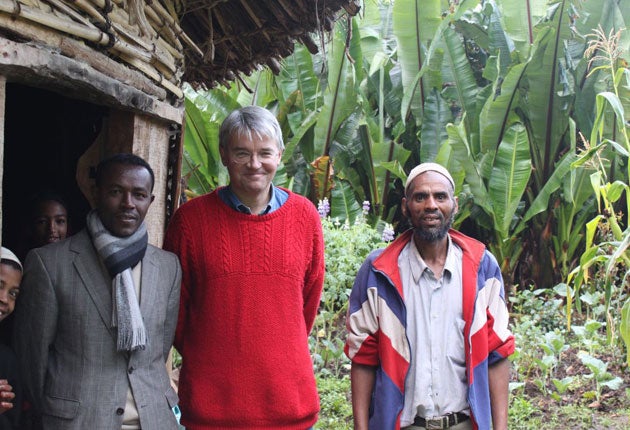Your support helps us to tell the story
From reproductive rights to climate change to Big Tech, The Independent is on the ground when the story is developing. Whether it's investigating the financials of Elon Musk's pro-Trump PAC or producing our latest documentary, 'The A Word', which shines a light on the American women fighting for reproductive rights, we know how important it is to parse out the facts from the messaging.
At such a critical moment in US history, we need reporters on the ground. Your donation allows us to keep sending journalists to speak to both sides of the story.
The Independent is trusted by Americans across the entire political spectrum. And unlike many other quality news outlets, we choose not to lock Americans out of our reporting and analysis with paywalls. We believe quality journalism should be available to everyone, paid for by those who can afford it.
Your support makes all the difference.It might seem an unfortunate time for a Secretary of State to bed down for the night with a leading Tory blogger, but should the nature of the relationship between International Development Secretary Andrew Mitchell and Tim Montgomerie, the ConservativeHome website editor, become the subject of internet speculation, they can at least call on eight Ethiopian children, three cows and a goat to confirm that their union was solely political.
Mr Mitchell, usually more comfortable in the Santorini linen sheets of his constituency home (graciously provided by the taxpayer), spent Saturday night on the floor of a single-room thatched mud hut in Ethiopia, as part of a fact-finding visit to the country. Mr Montgomerie slept under a rug on the bare floor next to the fire.
"Alongside us were eight children, granny, mum and dad, a goat, a calf, three cows and the pet cat," said Mr Mitchell, revealing that the extra sleeping room was not the only sacrifice required. "The children danced and sang some traditional songs. I sang 'The Bear Went Over The Mountain'."
It was a cold night in Azernet Berbere in the Ethiopian highlands, some 2,600m above sea level, with sleep interrupted by the cries of a poorly child and a powerful storm during the night. It being the month of Ramadan, there were no lie-ins.
"We were up at twenty to five to go to the mosque for morning prayers," Mr Mitchell said. "Then I helped the family in cutting wood, preparing sugar from sugar cane, and weeding their bean crop. It's very important, if you do my job, you need to have the best possible understanding of the lives of the people you are trying to help."
Beans are one of eight crops Abrar Shokreto and his family raise on their one hectare of land, where they live on less than a dollar a day each. It is a comparatively small plot but larger than their guest's West Midlands garden, which was revealed last year to have been lovingly tended with £9,000 of public cash.
Among the other staples the Shokretos grow are barley, sugar, pumpkin and ensete, known locally as gocho, or "false banana", for its similarity to the banana plant. It was the last plant which provided the evening meal for Mr Mitchell and Mr Montgomerie. "It has a very distinctive taste," said the minister. "You peel the false banana off the leaves, then you bury it and leave it to ferment. Once it has fermented, you squeeze out all the juices and it becomes rather like cous cous."
After Mr Mitchell left his host family, he met the headmaster of the local school which is yet to resume after the summer break, and visited the local health facility, a tiny mud building with a delivery room for pregnant mothers and one separate consulting room.
This month, he will attend a review summit in New York on the Millennium Development Goals, a set of eight targets set by the United Nations in 2001, including the eradication of extreme poverty and halting the spread of HIV/Aids, to be reached by 2015. "One of the important things about the Millennium Development Goals is that they underline the importance of clean water, sanitation, basic health care and education," he said."The family I stayed with, they have all of these. For the past five months, clean water has been coming into the village. Though it is very basic, there is a health-care centre. Six of the children are in school, the other two will go when they are old enough. But they live in such grinding poverty.
"With their crops and cattle, they live on the margins of subsistence. Three generations under one thatched roof, struggling to produce enough food. The children have just one set of clothes each. Once a fortnight, they walk to the river and wash them, then put them back on and they dry on their bodies while they walk home.
"I found it humbling to stay with the family. To meet Abrar, and see how he cares for his father, to go to the mosque with him, and see the importance of God in his life. Now we must bend every sinew to meet these goals by 2015."

Join our commenting forum
Join thought-provoking conversations, follow other Independent readers and see their replies
Comments